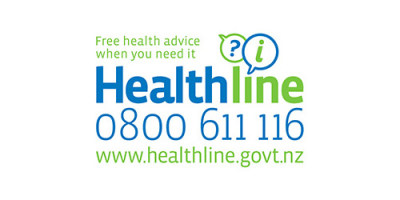Preparing for a hospital visit or stay
What to bring to hospital
Before your hospital stay you need to arrange a few things:
- someone who can bring things you might need, such as a change of clothes, as well as do your laundry
- someone who can let your friends and family know how you are
- if you live on your own, someone to check your house and look after any pets
- accommodation for whānau or family who want to be close to you while you are in hospital
- someone to take you home when you are discharged
What to pack: Checklist for your and whānau and friends
If you are planning a hospital stay, this checklist might be helpful. If you are helping a whānau member or friend during their stay, please see that they have these things:
- light, fitting clothes for a couple of days and a bag for laundry
- good-fitting shoes, sandals, or slippers to help avoid a fall
- daily toiletries, moisturiser and lip balm
- glasses or other reading aids
- hearing aids (and the case) with spare batteries.
- medicines packed into a container with your current medicines card (yellow card)
- health aids such as a CPAP machine, inhaler or walking aid
- reading material
- personal devices: tablet computer, laptop or mobile phone and chargers for each. There is free wi-fi available.
- ear buds or headphones for personal devices so that noise from them doesn't bother other patients
-
documents such as power of attorney or an advance care plan so people know what your wishes are if you can’t communicate them easily
Please also:
- keep jewellery and valuables at home (a wedding ring or pounamu are okay to wear)
- bring a small amount of cash only
- be aware that there is limited storage space around a hospital bed.
The hospital cannot accept responsibility for the security of personal items. Please ask ward staff to lock away any items that are valuable to you.
Get up, get dressed, get active, return home
We encourage patients to get up and dressed during their stay in hospital.
Getting patients out of bed, dressed in their own clothes and walking helps them feel stronger, recover more quickly and be less likely to fall.
Research has shown that patients who stay in their pyjamas or hospital gowns for longer than they need lose fitness and muscle strength quickly, have a higher risk of infection, and ultimately stay in hospital longer.
Help your loved one feel better, more independent and mobile by bringing in a change of clothes, well-fitting walking shoes, sandals or slippers (which are easy to put on) and encourage them to get up, get dressed and, with support, back walking.
This advice, and a copy of the packing list, is available to download and print as the Managing an unexpected hospital stay pamphlet.
Arriving at hospital
If you are coming to one of our hospitals for arranged (elective) surgery or an outpatients appointment or procedure, please report to the information desk at the main entrance or the department specified on the letter you received from the hospital.
If you need any assistance, for instance directions or a wheelchair, please ask at the information desk at the main entrance.
Most patients report to the day stay unit (DSU) on the day of their surgery.
Nelson Hospital. Enter from the main entrance. Take the stairs on the left or the lifts on the right-hand to Level 3. Turn right out of the lifts. The day stay unit is on your right.
Wairau Hospital: Enter the hospital main entrance. Turn left down the main corridor. The day stay unit is straight ahead.
If you are following an ambulance in a car go to:
Nelson Emergency Department, 98 Waimea Road, Nelson
Wairau Emergency Department, Hospital Road, Blenheim
If visiting a patient go to the hospital main entrance:
Nelson Hospital, Tipahi Street, Nelson, phone (03) 546 1800
Wairau Hospital, Hospital Road, Blenheim, phone (03) 520 9999
Types of admissions
Day surgery
You will have your operation or procedure and be able to go home on the same day. If you need extra time in hospital time you may be admitted to a ward.
Day of surgery admission
Your operation is on the day you come into hospital but you may stay for a day or more after the operation.
General admission
You will come to hospital a day or so before having your operation and stay as long as necessary for your recovery
Arranged admissions
Your GP or a specialist will have arranged for you to have surgery or a procedure at the hospital. You may have been sent an appointment time to attend a pre-admission clinic at surgical outpatients where you will be asked questions for your admission and anaesthetic if you are having surgery.
Please complete any forms you have received before your appointment.
Pre-admission clinic
The pre-admission team will go through a checklist with you.
If you start to feel unwell in the 48 hours before your surgery, please call the hospital for advice:
Nelson Hospital (03) 546 1687
Wairau Hospital (03) 520 9686
Call the number on your booking letter for advice if you feel there is a reason for not keeping your surgery date.
Nursing staff
During your stay in hospital you will be cared for by registered nurses and healthcare assistants. The healthcare assistants work under the delegation and direction of the registered nurses. We aim to provide continuity with the same nurse assigned to you during your stay in hospital but due to rotating shifts at times this is not possible.
Students
Our hospitals provide clinical education and training for student doctors, nurses and other health professionals. Nursing students from Nelson Marlborough Institute of Technology, working alongside a registered nurse, may care for you during your stay.
Students will always identify themselves and will ask your permission before discussing your care or examining you.
Students are supervised by qualified staff at all times and if you do not want them to participate in your care, just say so – they will not be offended.
Other support staff
- Hospital social workers
- Chaplains
- Interpreters
- Te Waka Hauora Maori health service representatives
Staff identification
Patient identity bracelets
When you are admitted to hospital, an identity bracelet is placed around your wrist. This bracelet has important information on it and staff will check it to make sure they are treating the right person. This bracelet must stay on while you are in hospital.
Your room at the hospital
Most patients in our hospitals share a room. People who are very sick are usually given a single room. Once their condition improves they may be moved into a shared room.
Usually there are separate four-bed rooms for men and women. Children up to age 15 are admitted to the Children’s Ward. We encourage parents or caregivers to stay with their child, as it is an important part of the child’s recovery to have a familiar member of the family helping to care for them. Some fold down beds or chairs are available for one parent or a caregiver to sleep beside their child’s bed.
Delirium
Delirium is a common and serious medical problem that causes changes in the way people think and behave.
It occurs more often among older people. When a person has delirium, they are confused and may be very agitated or quiet and drowsy. This occurs due to an underlying illness and usually improves over time with treatment for the underlying condition.
Family and whānau are more likely to notice changes much earlier so please let the nurses know if you notice a change in behaviour.
Going home
Your discharge will be discussed with you throughout your hospital stay.
When you have your discharge date, please organise your transport home. There are shuttles available if you cannot arrange for someone to pick you up or if you cannot drive home yourself. Here is some information about shuttles.
When you have your discharge date you might also consider asking someone to stay with you at home for a few nights.
What to expect about discharge
- the ideal time for discharge is 11am. However, patients with more complex conditions may take longer to prepare for discharge.
- you will be given an advice sheet and information about any follow-up care or home-based support
- you may also be given a medical certificate or a prescription
- you can ask to talk to your nurse or doctor if you have any questions about what happened in hospital or what to expect after going home.
Leaving checklist:
- pack all belongings, including any items that have been kept in a locked cupboard for you
- check the power point around your bed for any chargers
- collect all medicines, walking aids or other health aids
Visitor accommodation at Nelson Hospital
Altrusa House
Altrusa House offers short-term accommodation for people who do not live in Nelson and who are in the region to support someone in hospital.
Located on the Nelson Hospital campus, Altrusa House is run by a trust and is a registered charity. To maintain the home, the trust charges $30-$40 per night for a room. Limited car parking, linen, cleaning and basic food provisions are supplied.
The house is not suitable for babies or toddlers. Pets are not allowed.
The Altrusa House brochure includes information about:
- criteria for bookings
- how to arrange accommodation
- visitor rules
- how to make a donation to the Altrusa House Trust
Inquiries about room availability can be made at the Nelson Hospital reception desk on the ground floor (main entrance). After-hours, when the desk is not staffed, please phone the hospital on: 03 546 1800.
Download the brochure [PDF 0.6MB]
Find Altrusa House on the Nelson Hospital map [PDF 1.5MB]
Page last updated: 09/08/2023





